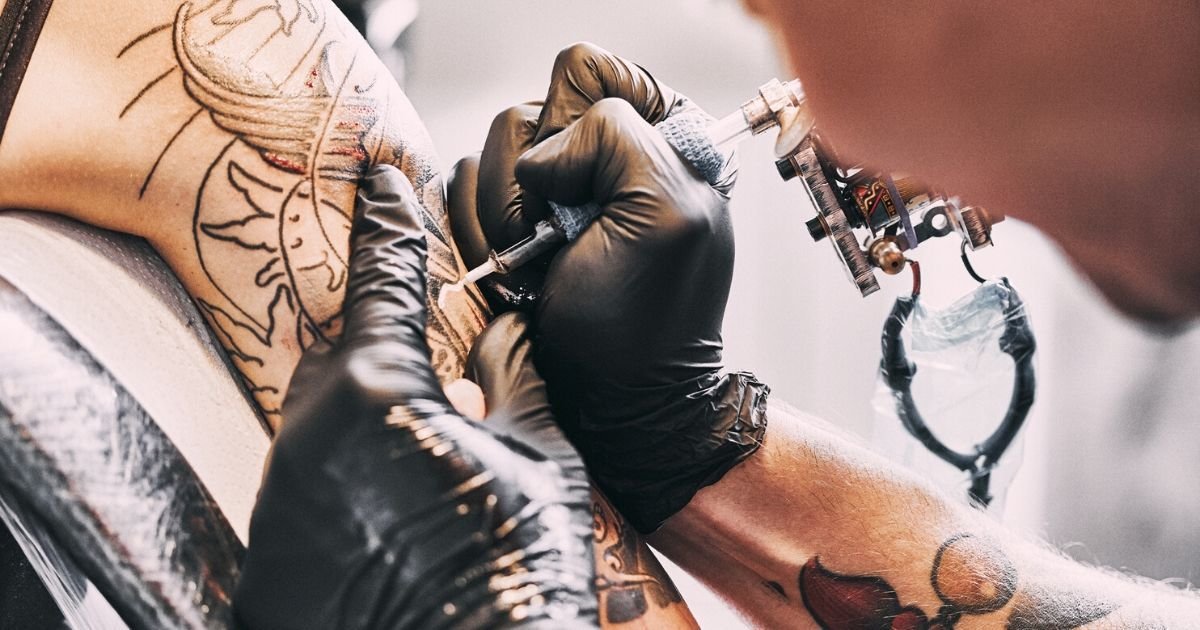
Tattoos are a huge part of American culture, with the skin designs being more widespread and accepted. Years ago, tattoos used to be taboo, but that's hardly the case anymore. It's common to see everyone from all walks of life with art on their skin. Colors, black and white, small and large, tattoos come in all shapes and sizes.
Narrowing down what someone is going to place on their body permanently is a lot of fun. Whether deciding to get one done was a spur-of-the-moment thing or something long-planned, choosing what to tattoo and where on the body it will go is a big decision. It's hard to conceptualize the permanency of a tattoo, and while there are ways to remove them if needed, it's costly and painful.
Unfortunately, some tattoo decisions are made without fully realizing the scope of the world. Not all tattoos are made the same, and some are deeply rooted in culture and hold significant meaning. It's not just all "oh this looks cool," and in using that framing as the only guidepost, sometimes we unintentionally get a tattoo on our body that could be culturally appropriative.
According to EverydayFeminism, "Cultural appropriation is when somebody adopts aspects of a culture that's not their own," and that can apply to tattoos. If the meaning behind the tattoos chosen isn't taken into account, these tattoos could potentially fall under cultural appropriation.
Ganesha
We've all seen the image of the elephant-headed Hindu god, but often those who are not of the Hindu religion don't understand the deep meaning behind this art. According to Britannica, this is a "Hindu god of beginnings, who is traditionally worshipped before any major enterprise." The symbolism of Ganesha is important in the Hindu culture and not just something pretty to tattoo, especially if there's no connection.
Mandala
Another popular tattoo that is commonly seen is the mandala. The mandala is also from the Hindu culture, and according to the BBC, a mandala "is a symbolic picture of the universe" and "one of the richest visual objects in Tibetan Buddhism." There is a trend of getting these tattooed for people who aren't of the Hindu culture because mandalas are beautiful.
Lotus
For some, the lotus flower is a beautiful, natural piece of inspiration for a tattoo, but the meaning is far more profound than that for others. Another symbol in the Hindu culture — and the Buddhist culture as well, a lotus flower, Binghamton University explains it as, "the Buddha is sometimes depicted sitting on a Lotus flower, symbolizing the one who overcame the pain of that prevails in the material world and became enlightened."
Native Americans
People are not for pretty tattoos, and there is so much symbolism in Native American culture. Without deeply understanding the purpose behind every garment they wear, there's a considerable risk of taking the culture for beauty without understanding the deep meanings.
Tribal
There are many different types of tribal art, including Celtic, Iban, Mayan, and Aztec deities. Unless there's a personal connection to the culture, these tattoos could be seen as cultural appropriation. Each symbol is rooted in the spirituality and specifics of what makes it traditional.
Maori Tattoo
Traditional Maori tattoos are done on the face, and the "messages tell the story of the wearer's family and tribal affiliations, and their place in these social structures," according to New Zealand Media. While many Americans likely won't choose the traditional placement, some are mixing up Maori with other cultures, and there's a lack of understanding.
Sugar Skulls
Sugar skulls, or calaveras de azúcar, are intricate designs that are part of celebrations of Día de Muertos, or Day of the Dead. Its meaning is deeply rooted in Mexican culture, holding great significance in honoring those who have passed on. They're beautiful and unique and sometimes mistaken as tattoos for people who aren't a part of the culture.
Dream Catchers
Dream catchers are a popular tattoo choice, but many don't realize they are a symbol in Native American and First Nations cultures. Its purpose is for protection and as armor for children and is often placed around cradles. According to PowWows.com, "some Native Americans see dream catchers to be misused and offensively exploited by non-Native Americans."
Hula Girls
Typically seeing hula girl tattoos, they're sexualized, and the meaning behind them is stripped away. According to GoHawaii, "hula is the storytelling dance of the Hawaiian Islands," and is an integral part of the Hawaiian and Polynesian culture. "Hula animates history, genealogy, prophecy, and the tales of those who came before."
Samoan Tattoos
Samoan tattoos are sometimes grouped into tribal tattoos, but there is a lot of tradition that goes into these. In the Pacific Islands, tattoos are called "tatau" and are "performed as a rite of passage to adulthood," and are a symbol of a person's heritage, according to Inside Out*.*
Koi Fish
Koi fish are popular in tattoos, but they also hold meaning in Japanese culture. Add to that the deep history of traditional Japanese tattooing, which has its own set of rules, getting a koi fish tattoo without that understanding can be seen as appropriation.
Hindu Goddesses
There are so many cultural symbols that are strikingly beautiful and hold deep meaning. Hindu goddesses are not around to be taken out of context and tattooed on just anyone. There have been instances of people visiting India and getting into major trouble for having Hindu tattoos that were found offensive.
Kanji
Kanji is often used in tattoos for people who don't read the language. One popular instance was when Ariana Grande showed off her new Japanese Kanji tattoo that turned out to be misspelled. Without understanding what it is that's being tattooed, it can be a real issue for some from the culture.
Indigenous Imagery
It is understandable why people would look to ancient warrior imagery when looking for a tattoo that represents a struggle in their life. The Mayan warriors have a long history that means a lot to some cultures. Knowing the full story behind each image is necessary for understanding its deep meanings.
Hate Symbols Like Swastikas or 88s
While these aren't so much as appropriating a culture, these do show hate for a religion, which is not OK. Research the meaning of a tattoo before getting it and steer clear of anything that is a subtle racist or hate symbol, like the number 88.




